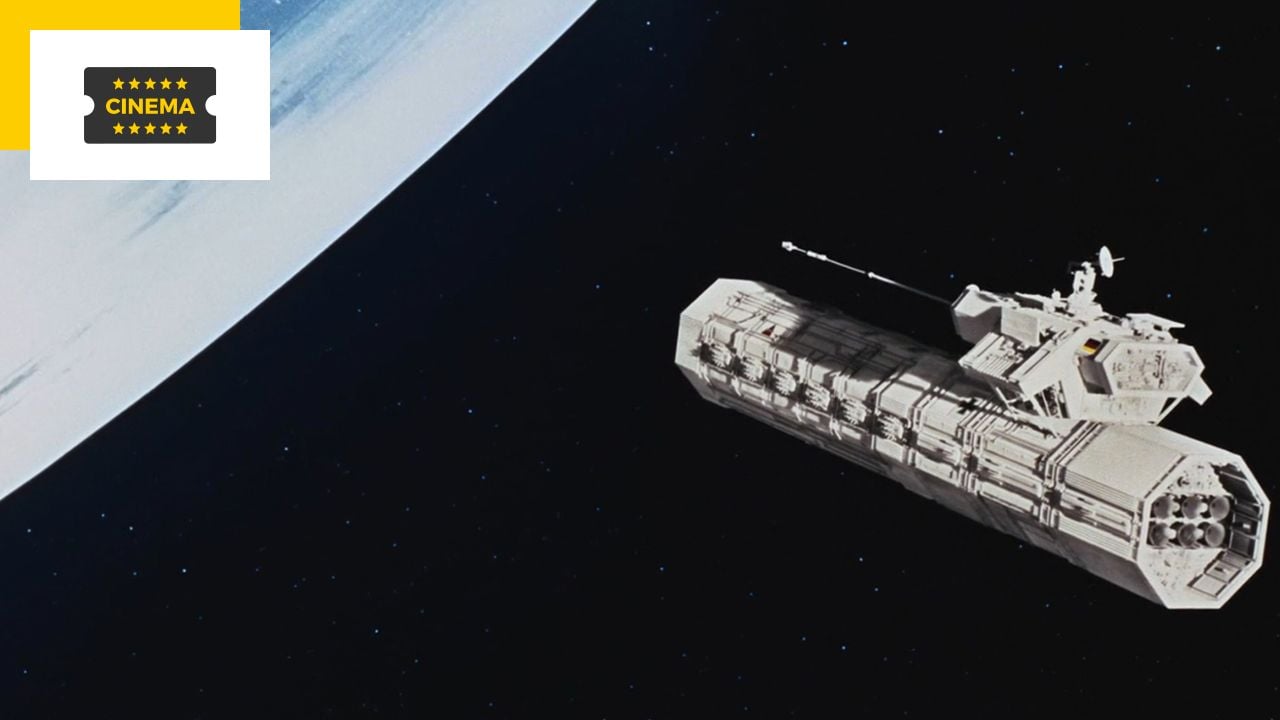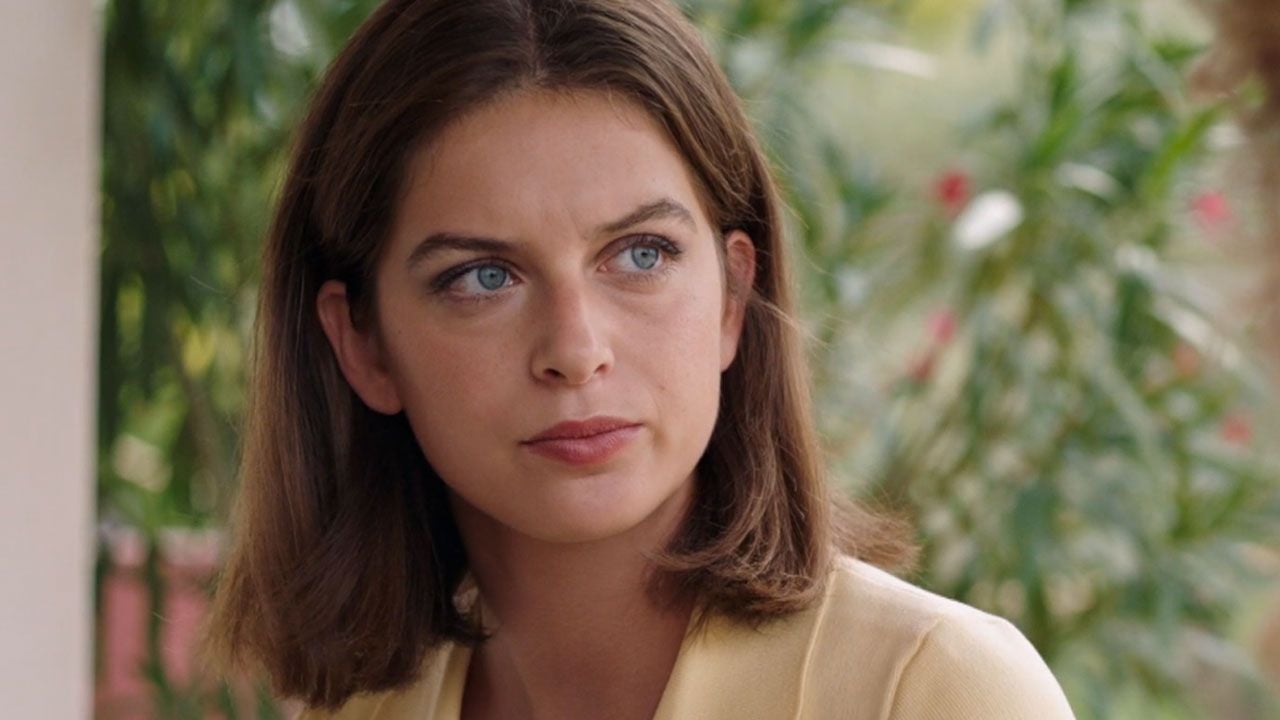2001: A Space Odyssey needs no introduction, the masterpiece directed by Stanley Kubrick in 1968. Regularly ranked among the greatest films of all time, this work of SF marks the cinematic history of its imprint.
Let us remind you that the feature film is an adaptation of Arthur C. Clarke’s novel. It takes us first to the dawn of humanity. In the African desert, a tribe of primates suffers repeated attacks from a rival gang who dispute a water point. The discovery of the black monolith inspires the leader of the besieged apes to make an unprecedented and decisive gesture. By popping the bone, it goes on the attack and kills the opponents. The first instrument is born.
In 2001, 4 million years later, the spacecraft is orbiting the Moon in rhythm with the Moon. The beautiful blue Danube. On board, Dr. Heywood Floyd secretly investigates the discovery of a black monolith that emits strange signals towards Jupiter.
18 months later, astronauts David Bowman and Frank Poole head for Jupiter on Discovery. Two men calmly go about their daily tasks under the control of HAL 9000, a special computer equipped with intelligence and speech. However, HAL, undoubtedly more human than his masters, begins to show signs of concern: what is the purpose of this mission, and what will we find on Jupiter?
For director Martin Scorsese, 2001 is part of the pantheon of great films, as he said on the Indiewire mic. “It takes extraordinary courage, strength and courage to say, ‘We’re going to erase everything, we’re going to stop everything, we’re going to put everybody back into prehistory.’He said in 2018 at a screening organized for the film’s 50th anniversary in New York.
“In 2001, Stanley Kubrick was saying, ‘I want you to see something. I’ll make you experience things you never thought you’d experience”, the filmmaker concluded. Visionary director Stanley Kubrick reinvented the codes of SF in 1968, appropriating the genre entirely to get rid of it.
Even today, 2001 hasn’t aged at all, especially with its approach to special effects, which are still impressive today. Supervised by the legendary Douglas Trumbull, who died in February 2022, the film’s visual effects are still regarded as one of the greatest achievements of the era.
Without the expertise of this talented artist, Kubrick would never have been able to realize his vision for 2001: A Space Odyssey. It would also win an Academy Award for Best Visual Effects in 1969. A genius innovator, we owe him the special effects of great SF classics like Spielberg’s The 3rd Kind or Ridley Scott’s Blade Runner. Two films that earned him Oscar nominations each time.
Revolutionary, 2001 influenced many filmmakers, becoming the new benchmark in late 60s SF. There was a time before and after 2001: A Space Odyssey, whether in the film industry or in the imagination of the general public.
Despite its long running time and its contemplative and esoteric atmosphere, the feature film is a commercial and critical success. In France, the production attracted 3.2 million viewers when it was released in September 1968.
Between experimental film and science fiction, 2001 also shines on the strength of its soundtrack. After commissioning music from the famous composer Alex North, Stanley Kubrick decides at the last moment to throw everything in the trash in order to include some pre-existing classics. The North was not informed of this decision. He learned this at the premiere of the film in New York.
However, Kubrick’s choice paid off, with the music almost becoming a character in the piece, particularly its introduction and conclusion. Thus spoke Zarathustra Designed by Richard Strauss. We can also listen to works that have become inseparable from the feature film, e.g The beautiful blue Danube Requiem composed by Johann Strauss or Giorgi Ligeti.
WARNER AT UGC
From June 7th to August 29th, UGC cinemas will celebrate 100 years of Warner Bros. with a special program of 100 studio masterpieces in 20 UGC cinemas across France throughout the summer for €8.50 a seat.
All programming is enabled ugc.fr
UGC Ciné Cité les Halles: 1 film per day, or 84 films during the summer, and various events and entertainment to accompany this anniversary program.
UCG Ciné Cité Bercy: special retrospectives around franchises and filmmakers (Lord of the Rings, Christopher Nolan, DC Universe, etc.)
Dedicated program in 18 cinemas in France on Saturday and Sunday evenings:
UGC Ciné Cité Vélizy, UGC Ciné Cité Créteil, UGC Ciné Cité Cergy, UGC Issy les Ciné Cité, UGC Ciné Cité La Défense, UGC Ciné Cité SQY Ouest, UGC Ciné Cité Cité Cité, UGC Ciné Cité Cité Cité, Le Grand, UGC Ciné Cité Part-Dieu (Lyon), UGC Ciné Cité Internationale (Lyon), UGC Ciné Cité Atlantis (Nantes), UGC Ciné Cité Bordeaux, UGC Ciné Cité Bassins afloat (Bordeaux), UGC Talence (Bordeaux), UGC Talence (Bordeaux) Lille, UGC Ciné Cité Strasbourg, UGC Nancy.
Source: Allocine
Rose James is a Gossipify movie and series reviewer known for her in-depth analysis and unique perspective on the latest releases. With a background in film studies, she provides engaging and informative reviews, and keeps readers up to date with industry trends and emerging talents.






